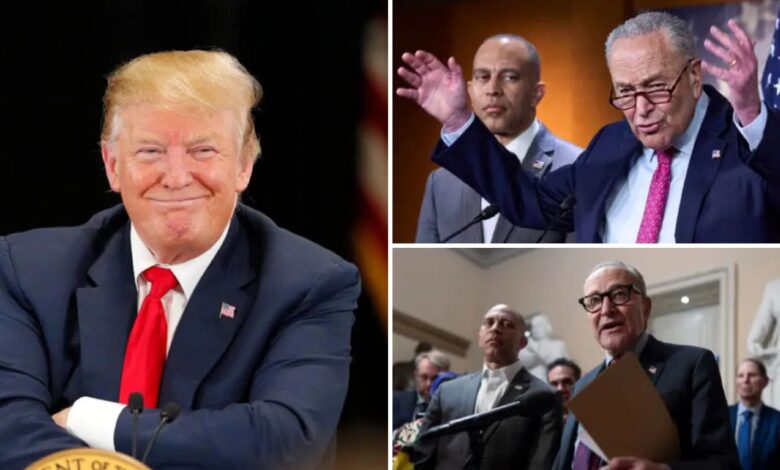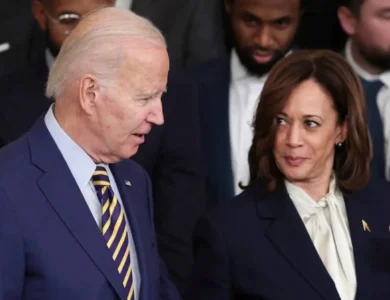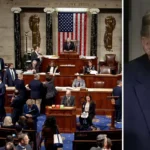White House: Shutdown Layoffs Will Be ‘North Of 10,000’

White House budget director Russ Vought is projecting that over 10,000 federal employees will be terminated due to the current government shutdown.
Vought pledged to “continue the RIFs,” alluding to the reduction-in-force notifications issued by agencies to terminate government employees on Friday.
Shortly after Vought’s statement, a federal judge in California introduced ambiguity into Vought’s commitment by prohibiting the layoffs associated with the closure. The Trump administration will contest that verdict.
Approximately 4,000 government employees have been terminated, as shown by court documents; however, the budget director anticipates that the total will likely exceed 10,000, as noted by Politico.
“We want to be very aggressive where we can be in shuttering the bureaucracy—not just the funding, but the bureaucracy—and we now have an opportunity to do that,” Vought added on The Charlie Kirk Show, speaking in his first live interview since the shutdown began.
Vought anticipated that the layoffs would affect agencies misaligned with the Trump administration’s priorities, including environmental justice initiatives at the Department of Energy and EPA, the Minority Business Development Agency, and the Cybersecurity and Infrastructure Security Agency.
The remarks were made a day after President Donald Trump pledged to provide a new list of programs for elimination on Friday, should the shutdown persist until the week’s conclusion.
“We’re closing up programs that are Democrat programs that we were opposed to,” Trump said Tuesday. “And they’re never going to come back in many cases.”
House Speaker Mike Johnson warned Wednesday that the Trump administration’s effort to keep military families paid during the ongoing government shutdown is only a temporary fix that could soon expire.
During a press conference at the Capitol, Johnson said the administration’s move to reroute Pentagon funds to cover military paychecks is a short-term measure that cannot continue indefinitely, Politico reported.
“The problem we have right now is that, in spite of President Trump’s heroic efforts to make sure they get paid, that is a temporary fix,” Johnson told reporters.
“The executive branch, his help, is not permanent. It can’t be,” he added. “And if the Democrats continue to vote to keep the government closed as they have done so many times, then we know U.S. troops are going to risk missing a full paycheck at the end of this month.”
The Trump administration authorized the Department of Defense to use unspent research and development funds to pay active-duty service members during the shutdown, which began earlier this month after the Senate failed to pass a funding measure.
The move provided temporary relief for military families who were preparing to miss their paychecks.
Johnson credited the president for taking action, but said the measure does not address the larger problem.
“The reason that the way they were able to get the troops paid for this paycheck — and as I said, this is not an enduring solution, because we will run out of the funds — but there was some unspent funds in, effectively, R&D accounts in defense,” Johnson said.
Chuck Schumer keeps voting to SHUT DOWN THE GOVERNMENT.
— Speaker Mike Johnson (@SpeakerJohnson) October 15, 2025
But he voted for this EXACT SAME government funding bill in March.
Why is he against it now??
…Because the RADICAL LEFT told him to be. He’s TURNED HIS BACK on the American people simply to please the Marxist wing of… pic.twitter.com/hhKu3d1IHs
“They moved that over to prioritize payment of those who are putting their lives on the line today and who have families in serious situations,” he added.
The government shutdown has resulted in thousands of federal employees being furloughed or temporarily laid off.
Those deemed “essential,” including active-duty military and federal law enforcement, continue to work but often without pay until the shutdown ends.
The House passed a short-term funding measure known as a continuing resolution on September 19 to keep the government operating through November 21.
The measure would give lawmakers more time to negotiate a comprehensive spending agreement for fiscal year 2026.
To advance in the Senate, the resolution requires 60 votes.
So far, only three Democrats have joined Republicans in voting to end the shutdown.





